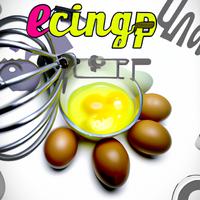
1 serving (61 grams) contains 25 calories, 5.0 grams of protein, 0.0 grams of fat, and 1.0 grams of carbohydrates.

Log this food in SnapCalorie

Nutrition Information
Calories |
97.3 | ||
|---|---|---|---|
% Daily Value* |
|||
| Total Fat | 0 g | 0% | |
| Saturated Fat | 0 g | 0% | |
| Polyunsaturated Fat | 0 g | ||
| Cholesterol | 0 mg | 0% | |
| Sodium | 350.2 mg | 15% | |
| Total Carbohydrates | 3.9 g | 1% | |
| Dietary Fiber | 0 g | 0% | |
| Sugars | 0 g | ||
| protein | 19.5 g | 39% | |
| Vitamin D | 155.6 mcg | 778% | |
| Calcium | 0 mg | 0% | |
| Iron | 0.8 mg | 4% | |
| Potassium | 233.5 mg | 4% | |
* Percent Daily Values are based on a 2,000 calorie diet. Your daily values may be higher or lower depending on your calorie needs.
Food Attributes
Source of Calories
About Eggbeaters
Eggbeaters are a popular egg substitute made primarily from egg whites. Designed as a lower-fat, lower-calorie alternative to whole eggs, Eggbeaters provide a similar taste and texture for cooking and baking, and are especially favored in breakfast dishes such as omelets or scrambled eggs. Developed in the United States, they have become a staple for those seeking healthier choices in their meals. With no fat, less cholesterol, and reduced calories compared to whole eggs, they appeal to individuals managing heart health or calorie intake. Eggbeaters are also fortified with nutrients like vitamins B2 and B12 to compensate for the yolk’s nutritional loss. However, they lack some of the natural richness and micronutrients found in whole eggs, making them less nutritionally complete. They are an easy, convenient option for healthier cooking, but may not fully replace the balance of nutrients in traditional eggs.



